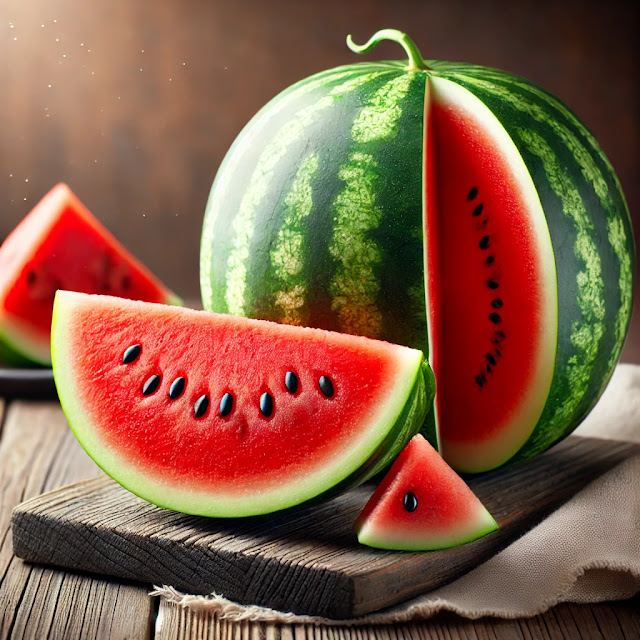Blackberries: Nature’s Antioxidant-Rich Powerhouse for Health
Overview:
Blackberries, with their deep purple-black hue and juicy texture, are a favorite summer fruit known for their bold, tangy flavor. Their unique appearance, combined with a wealth of nutrients, makes them a beloved choice for fresh consumption or in various culinary applications. Whether added to a smoothie or enjoyed on their own, blackberries are not only delicious but packed with health benefits.
Calories and Key Nutrients (per 100g):
A 100g serving of blackberries contains about 43 calories, making them a low-calorie, nutrient-dense fruit. They are rich in dietary fiber, providing nearly 5g per 100g, which helps support digestion. Blackberries also contain high levels of vitamin C, vitamin K, and manganese. Furthermore, they are packed with antioxidants, such as anthocyanins, which give the fruit its rich color and help protect against oxidative stress. Compared to fruits like raspberries or blueberries, blackberries offer a slightly lower sugar content and a high antioxidant capacity, making them a perfect choice for health-conscious individuals.
Health Benefits:
Blackberries are known for their powerful antioxidant properties, primarily due to their high anthocyanin content. These antioxidants help reduce inflammation and lower the risk of chronic diseases like heart disease and cancer. The high fiber content supports gut health, while vitamin C boosts the immune system and contributes to skin health. Additionally, vitamin K in blackberries promotes bone health, and manganese plays a role in metabolism and energy production.
Proper Consumption Methods:
Fresh blackberries are best when fully ripe, offering a sweet yet tart flavor profile. They can be eaten on their own or added to salads, smoothies, or yogurt for a nutritious snack. Freezing blackberries is another excellent way to preserve their nutrients for later use in baked goods or sauces. Blackberries can also be used in jams, jellies, or reduced into a flavorful syrup to drizzle over pancakes or desserts.
Tasty Ways to Eat Blackberries (Recipes):
One simple yet delightful way to enjoy blackberries is by creating a blackberry crumble. Mix fresh blackberries with a bit of sugar and lemon juice, then top with a crunchy oat-based crumble. Bake until golden brown and serve with a scoop of vanilla ice cream. Another option is a refreshing blackberry lemonade: blend fresh blackberries with lemon juice and honey, then strain and mix with cold water for a thirst-quenching drink.
Cautions When Eating Blackberries:
While blackberries are generally safe and healthy, consuming too many may cause digestive discomfort, especially for those sensitive to high fiber content. Some individuals might experience allergic reactions, although such cases are rare. Like other berries, blackberries contain natural sugars, so those with diabetes should consume them in moderation.
Comparing Blackberries to Other Fruits:
Compared to blueberries and raspberries, blackberries offer a similar antioxidant boost but with slightly lower sugar content. While blueberries are often praised for cognitive health benefits, blackberries excel in supporting bone health due to their high vitamin K content. Both berries are excellent for boosting immune function, but blackberries' higher fiber content makes them a better option for digestive support.
Who Should Eat Blackberries and Who Should Avoid Them:
Blackberries are perfect for individuals looking to improve their digestive health, enhance bone strength, or support heart health. They are also ideal for athletes due to their high vitamin C content, which aids in recovery. However, people with specific fruit allergies or those on a low-fiber diet should consume blackberries in moderation.
Interesting Stories or Facts:
Did you know that blackberries have been used medicinally for centuries? In ancient Greece, they were used to treat gout, and during the Middle Ages, blackberry leaves were applied to wounds to promote healing. Blackberries also hold cultural significance in many regions, with traditions of foraging them in the wild, especially in late summer.
Blackberry Culture Around the World:
In the UK, blackberries are a popular wild fruit often foraged and used in desserts like crumbles and pies. In the southern United States, blackberries are a key ingredient in cobblers, a classic comfort food. Meanwhile, in parts of Europe, blackberry wine and liqueur are made, offering a unique way to enjoy this fruit.
Scientific Research on Blackberries:
Recent studies have highlighted the potential of blackberries in reducing the risk of cardiovascular diseases due to their high anthocyanin content. Research also suggests that blackberries may have anti-cancer properties, as the antioxidants they contain help combat cell damage. Additionally, studies show that consuming blackberries can improve memory and cognitive function, making them a valuable fruit for supporting brain health.
Conclusion:
Blackberries are not only a flavorful and versatile fruit but also a valuable addition to a healthy diet. Their rich nutrient content, antioxidants, and low calorie count make them a perfect choice for those looking to boost their health naturally. However, individual dietary needs should be considered when consuming them.
This information may not be entirely accurate, so if you have any medical conditions, please consult a doctor before consuming blackberries.











Comments
Post a Comment